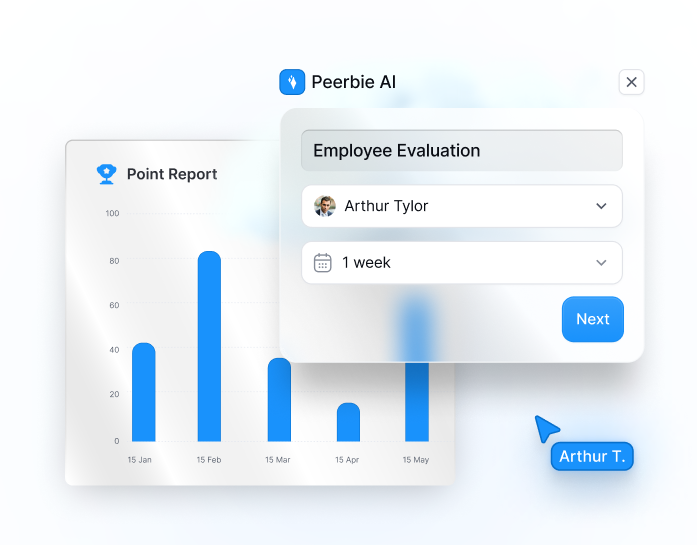Why Is Team Management Important?

Managing a team effectively is crucial for any organization’s success. It involves coordinating individuals to achieve a common goal and ensuring that everyone works towards the same objectives. This article discusses the importance of team management, its long-term benefits, effective strategies, and ways to improve communication, collaboration, productivity, and efficiency within a team.
What is Team Management?
Team management involves organizing, leading, and coordinating a group of individuals to achieve specific goals. It includes planning, delegating tasks, setting goals, and monitoring performance. Effective team management ensures that all team members understand their roles, responsibilities, and how their work contributes to the organization’s overall goals.
A team manager’s role includes:
- Planning: Setting clear objectives and developing a roadmap to achieve them.
- Organizing: Allocating resources, assigning tasks, and establishing workflows.
- Leading: Motivating and guiding team members, fostering a positive team culture.
- Controlling: Monitoring progress, providing feedback, and making necessary adjustments.
Effective team management also involves addressing any issues or conflicts within the team, keeping communication channels open, and ensuring everyone works together smoothly. This approach drives productivity and fosters a positive and collaborative work environment, which is essential for long-term success.

The Long-Term Benefits of Effective Team Management
Effective team management offers numerous long-term benefits for both the organization and its employees. These benefits include:
Improved Employee Satisfaction and Retention
When employees feel valued and engaged, they are more likely to stay with the company. This reduces turnover and helps the organization keep valuable skills and knowledge.
Enhanced Productivity
A well-managed team is more productive because tasks are delegated effectively, and team members clearly understand their responsibilities. This reduces overlap and ensures projects are completed on time and within budget.
Innovation and Creativity
Supportive management that values input from all team members creates an environment where new ideas flourish, driving the organization forward in a competitive market.
Better Decision-Making
Managers can make better decisions by leveraging the team’s collective intelligence, leading to more informed outcomes. Effective management ensures that all voices are heard and considered.
Scalability
Organizations with strong team management practices can grow more effectively. As the organization expands, teams can adapt and increase without losing productivity or cohesion. Effective management provides a framework for growth, ensuring the organization can handle increased complexity and volume without sacrificing performance.
Stronger Organizational Culture
Effective team management fosters a positive organizational culture where employees feel supported and motivated. This culture spreads throughout the organization, enhancing overall performance and employee morale. A strong, positive culture attracts top talent and creates a work environment where employees are proud to contribute.
How to Manage a Team?
Managing a team effectively requires a combination of skills and strategies. Here are some key steps to manage a team successfully:
Set Clear Goals and Expectations
Define clear, achievable goals for the team. Ensure each team member understands their role and how their work contributes to the overall objectives. Setting specific, measurable, achievable, relevant, and time-bound (SMART) goals provides a clear direction and helps keep everyone focused.
Foster Open Communication
Create an environment where team members feel comfortable sharing their ideas and concerns. Regular meetings and updates help keep everyone on the same page. Open communication channels prevent misunderstandings and address issues promptly.
Delegate Responsibilities
Assign tasks based on individual strengths and skills. Delegating tasks effectively ensures workloads are balanced and team members engage in meaningful work. By leveraging the unique abilities of each team member, managers can maximize productivity and job satisfaction.
Provide Feedback and Recognition
Regular feedback helps team members improve and stay motivated. Recognize and celebrate achievements to boost morale and encourage continued high performance. Constructive feedback, combined with positive reinforcement, helps build a culture of continuous improvement.
Invest in Professional Development
Offer opportunities for team members to develop their skills and advance their careers. This not only benefits the individual but also enhances the team’s overall capabilities. Providing access to training, workshops, and mentoring programs shows a commitment to employee growth and can lead to higher retention rates.
Resolve Conflicts Promptly
Address any conflicts or issues as soon as they arise. A proactive approach to conflict resolution prevents small issues from escalating and disrupting the team. By fostering a culture of respect and open dialogue, managers can maintain a harmonious work environment.

Enhancing Communication and Collaboration
Effective communication and collaboration are essential components of successful team management. Here are some strategies to enhance these aspects:
Use Collaboration Tools
Utilize tools like project management software, instant messaging, and video conferencing to facilitate communication and collaboration. Tools like Peerbie, Slack, and Trello help teams stay connected and organized. These platforms offer features such as task tracking, file sharing, and real-time updates, making it easier to coordinate efforts and manage projects.
Encourage Regular Check-Ins
Schedule regular check-ins and meetings to discuss progress, address concerns, and plan upcoming tasks. This helps keep everyone aligned and informed. Regular touchpoints also provide opportunities for team members to share updates and receive feedback.
Foster a Collaborative Culture
Value and encourage teamwork to promote a collaborative culture. Achieve this through team-building activities, collaborative projects, and recognizing team achievements. Encouraging collaboration over competition helps build strong, cohesive teams that work well together.
Provide Clear Communication Channels
Ensure clear channels for communication, both formal and informal. This includes an open-door policy for management and encouraging team members to communicate directly with each other. Clear protocols for communication help prevent misunderstandings and ensure important information is shared promptly.
Listen Actively
Practice active listening by giving full attention to the speaker, acknowledging their points, and responding thoughtfully. This fosters mutual respect and understanding within the team. Active listening shows that managers value their team members’ input and are willing to consider their perspectives.
Boosting Productivity and Efficiency
To boost productivity and efficiency within a team, consider the following strategies:
Set SMART Goals
Use the SMART criteria (Specific, Measurable, Achievable, Relevant, Time-bound) to set clear and attainable goals. This provides direction and helps measure progress. Clear goals help team members understand what is expected of them and how their work contributes to the overall objectives.
Streamline Processes
Identify and eliminate any inefficiencies in workflows. This might involve automating repetitive tasks, simplifying procedures, or reallocating resources. Streamlining processes can free up time for more strategic activities and reduce the risk of errors.
Encourage Time Management
Promote good time management practices such as prioritizing tasks, setting deadlines, and avoiding multitasking. Providing training on time management can also be beneficial. Effective time management helps team members stay focused and meet deadlines, leading to higher productivity.

Monitor and Adjust Workloads
Keep an eye on team members’ workloads and make adjustments as necessary. Avoid overloading anyone and allocate resources effectively. Balancing workloads helps prevent burnout and ensures that all team members can perform at their best.
Leverage Technology
Use technology to automate tasks, track progress, and facilitate communication. Tools like project management software, time tracking apps, and automation tools can significantly enhance productivity. By integrating technology into workflows, managers can optimize processes and improve efficiency.
Promote a Healthy Work-Life Balance
Encourage team members to maintain a healthy work-life balance. This includes setting reasonable working hours, promoting breaks, and respecting personal time. A healthy work-life balance is essential for maintaining long-term productivity and job satisfaction.
Effective team management is essential for the success and growth of any organization. It involves setting clear goals, fostering open communication, delegating responsibilities, and providing regular feedback and recognition. By enhancing communication and collaboration, and implementing strategies to boost productivity and efficiency, organizations can achieve long-term benefits such as improved employee satisfaction, increased innovation, and a stronger organizational culture. Tools like Peerbie can facilitate these processes by providing an all-in-one platform for collaboration, task management, and communication. Investing in effective team management practices is crucial for building high-performing teams and achieving organizational goals.
In conclusion, mastering the art of team management is a continuous journey that requires dedication, empathy, and strategic thinking. As the workplace evolves with new challenges and opportunities, staying adaptable and open to new methods and technologies will help managers lead their teams to success. By prioritizing the well-being and development of team members, managers can create an environment where everyone thrives, driving the organization towards its goals with collective strength and determination.

